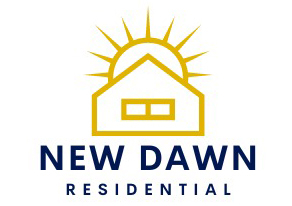What are Mortgage Arrears?
Mortgage arrears occur when homeowners fall behind on their mortgage payments, failing to meet their contractual obligations with the lender. This means that they owe the lender an outstanding amount, which can lead to financial complications and potential repossession if left unresolved. Mortgage arrears can create significant financial stress for homeowners. Understanding the impact and causes behind mortgage arrears is crucial for addressing and resolving these challenges.
Impact of Mortgage Arrears
Falling into mortgage arrears can have severe consequences for homeowners. It is important to grasp the potential implications to address the issue promptly. The specific financial consequences of being in mortgage arrears can vary depending on your lender and your individual circumstances. Below are just a few of the potential consequences that arise as a result of being in mortgage arrears.
Accumulation of debt and interest
Mortgage arrears can result in the accumulation of substantial debt and interest. When homeowners miss mortgage payments, the outstanding amount continues to grow, as interest accrues on the arrears. Over time, the debt can become increasingly difficult to manage, leading to a heavier financial burden. The longer the arrears remain unpaid, the more challenging it becomes to catch up on the payments, potentially trapping homeowners in a cycle of debt. This also may cause late payment fees and additional interest. These fees can add up quickly and make it even more difficult to get caught up on your payments.
Damage to your credit score
Mortgage arrears can have a detrimental effect on a homeowner’s credit score. Credit reference agencies record missed mortgage payments, which are then reflected in the individual’s credit history. These negative marks can lower the credit score, making it more challenging to access credit in the future. A lower credit score may result in difficulties obtaining loans, credit cards, or even renting accommodation. The impact on credit can be long-lasting, affecting various aspects of the homeowner’s financial life.
Risk of repossession
One of the most significant consequences of failing in dealing with mortgage arrears is the risk of repossession. When homeowners consistently fail to make mortgage payments, lenders have the legal right to initiate repossession proceedings. If the arrears remain unresolved, the lender may take possession of the property and sell it to recover the outstanding debt. Repossession can lead to homelessness, the loss of one’s investment, and significant disruption to the lives of homeowners and their families.
What are the common causes of mortgage arrears?
House repossession can be a distressing experience for homeowners in the UK. It is important to understand the various causes that can lead to repossession to take proactive steps to prevent it.
1. Inflation and Affordability Issues
Turbulence in the UK’s economy has put a squeeze on household budgets. Inflation reached a peak making it difficult for many homeowners to keep on top of debts and everyday bills such as food, fuel and electricity. With high inflation if homeowners are not experiencing pay rises to cover the increased cost of living, they may fall behind on mortgage repayments, causing mortgage arrears. It can be considered a priority debt that will need addressing before any other monetary commitment.
2. High Interest Rates and Mortgage Terms
In general, mortgage rates tend to be influenced by a variety of factors, including:
- The Bank of England’s base rate: The Bank of England is the central bank of the United Kingdom, and it sets a base rate that influences the interest rates that banks charge for lending money. If the Bank of England raises its base rate, then mortgage rates are likely to increase as well.
- The state of the economy: The health of the UK economy can also impact mortgage rates. For example, if the economy is growing and inflation is rising, then interest rates may also increase, which could lead to higher mortgage rates.
- Demand for mortgages: The demand for mortgages can also influence rates. If there is a high demand for mortgages, lenders may increase rates to make their lending less attractive and reduce demand.
- Competition between lenders: The level of competition among lenders can also affect mortgage rates. If lenders are competing for business, they may offer lower rates to attract borrowers.
- Global financial markets: Global economic factors such as international interest rates, currency exchange rates, and political events can also impact mortgage rates in the UK.
Increased mortgage rates can cause mortgage arrears if borrowers are unable to keep up with their monthly mortgage payments. When mortgage rates increase, the amount of interest that borrowers must pay on their mortgage also increases, which can make their monthly payments more expensive. In the economic climate, mortgage rates are seen to be increasing to reduce the inflation.
3. Job Loss and Reduction in Income
One of the primary causes of mortgage arrears is unemployment or a sudden loss of income. Losing a job or experiencing a reduction in income can make it challenging for homeowners to keep up with their mortgage repayments, leading to arrears.
4. Divorce, Separation, and Legal Costs
Divorce or relationship breakdowns can have a substantial financial impact on homeowners. The costs of legal proceedings, division of assets, and the need to find alternative accommodation can strain finances, making it difficult to maintain mortgage payments.
5. Inadequate Budgeting and Financial Planning
Poor financial management, including overspending and inadequate budgeting, can contribute to mortgage arrears. Living beyond one’s means, excessive debt, and failing to prioritize mortgage repayments can lead to financial strain and the accumulation of arrears.
If your struggling, please seek mortgage arrears help if needed. We at New Dawn Residential are always here to support you, whether it’s providing you with mortgage arrears advice or actively saving you from house repossession by purchasing your property before repossession happens. Feel free to reach out and contact us at 02080595003 or at hello@newdawnresidential.co.uk

